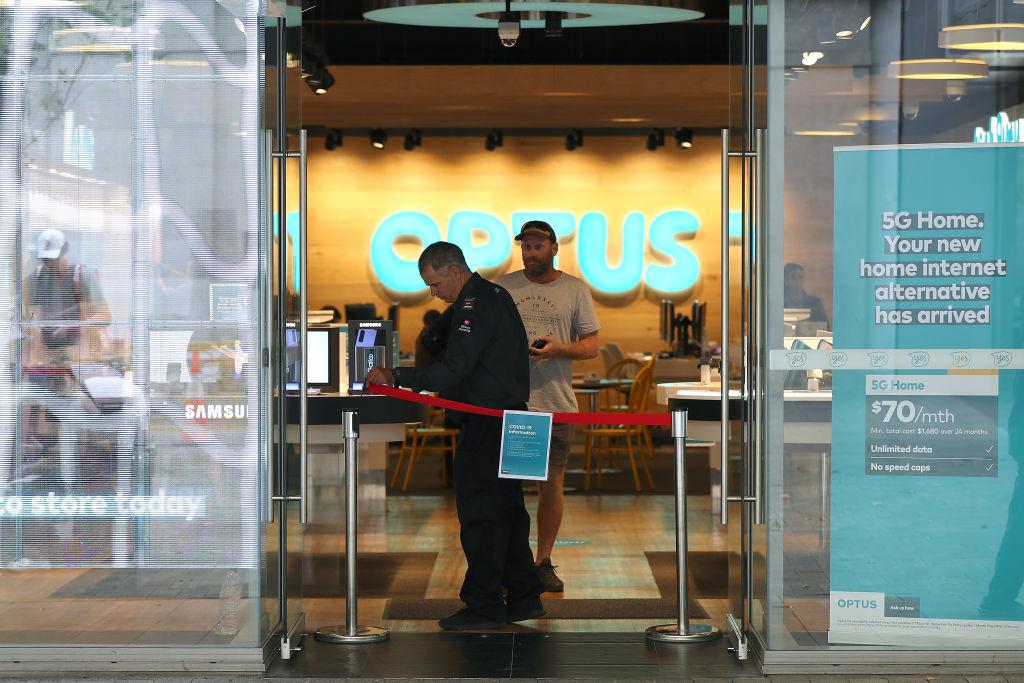
A security guard in an Optus retail store removes a barrier for a customer in Perth, Australia, on March 27, 2020. Paul Kane/Getty Images
Prime Minister Anthony Albanese has announced Optus has agreed to cover the costs for replacement passports following a massive data breach.
The prime minister confirmed the telco would pay during a press conference following a national cabinet meeting on Friday.





